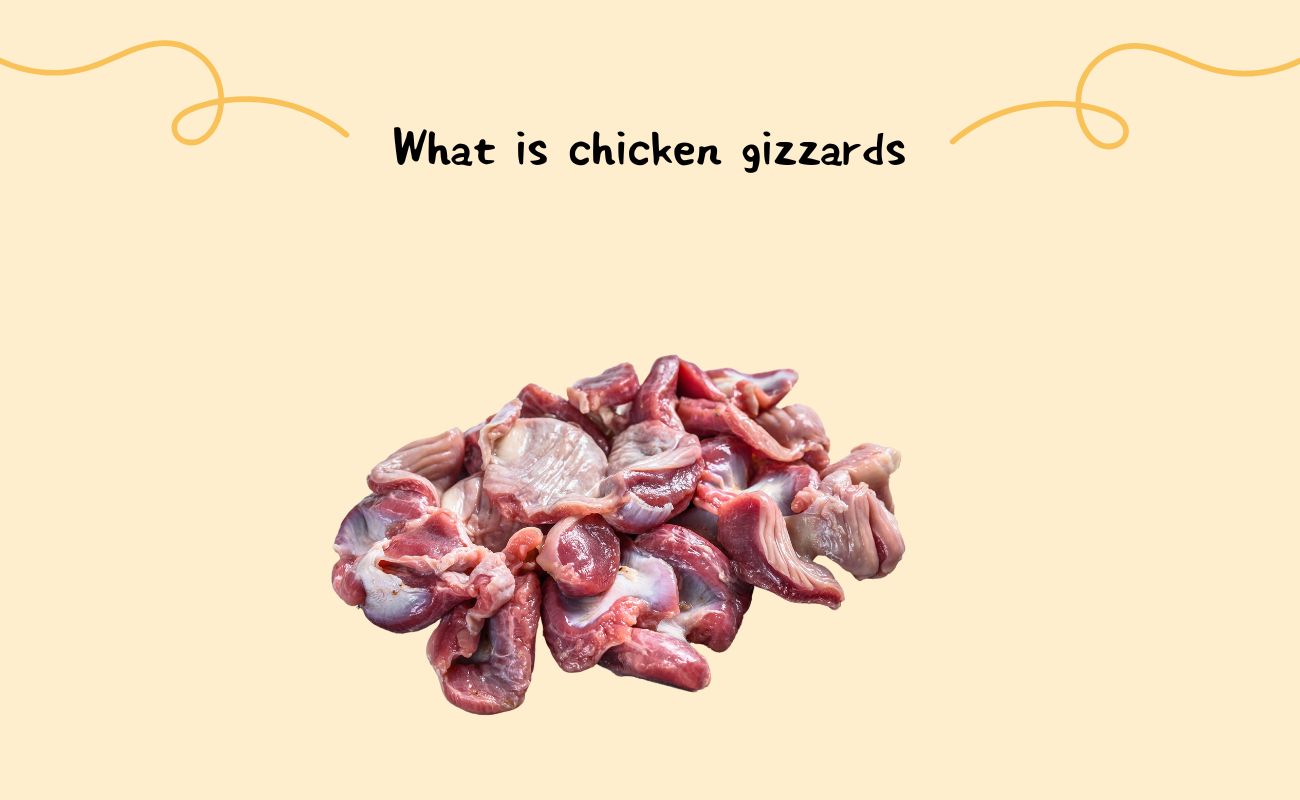What are Chicken Gizzards? Are Chicken Gizzards Good for Dogs?
Chicken gizzards are muscular organs found in the digestive tract of chickens.
They play a crucial role in grinding food and aiding in the digestion process.
Gizzards have a firm texture and are rich in
- Protein
- Vitamins
- Minerals
Are you considering adding chicken gizzards to your dog’s diet? Understanding whether this protein-rich organ meat is beneficial for your furry friend is essential for their overall health and nutrition. In this detailed guide, we’ll explore the question, “Are chicken gizzards good for dogs?” and provide valuable insights to help you make informed decisions about your pet’s diet.
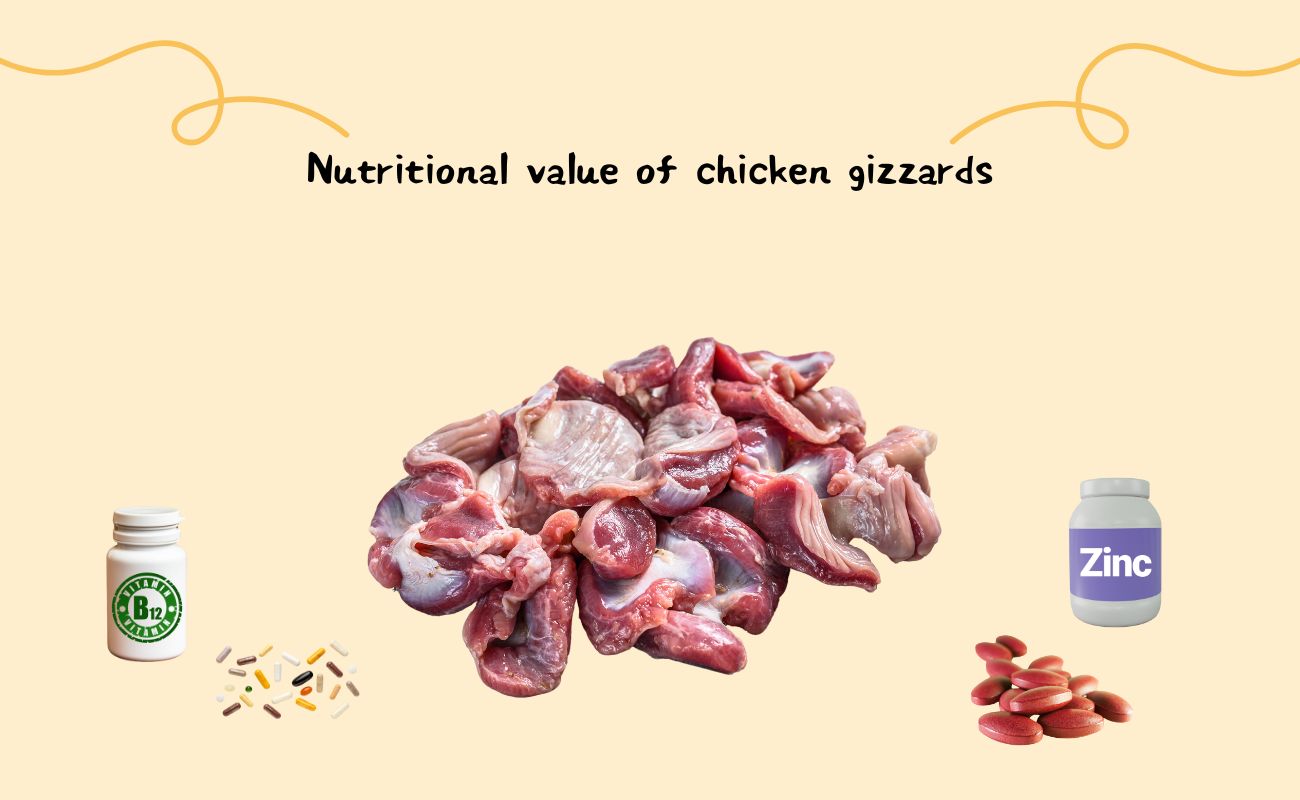
Nutritional Value of Chicken Gizzards
Chicken gizzards are an excellent source of protein, providing essential amino acids necessary for muscle growth and maintenance.
They also contain vitamins such as
- B12
which supports nerve function, and minerals like
- Iron
- Zinc
essential for overall health.
Here’s a table detailing the nutritional value of chicken gizzards per 100 grams
| Nutrient | Amount Per 100g |
|---|---|
| Calories | 94 |
| Protein | 19.4g |
| Fat | 1.9g |
| Saturated Fat | 0.5g |
| Cholesterol | 536mg |
| Sodium | 111mg |
| Potassium | 223mg |
| Iron | 4.3mg |
| Vitamin A | 106μg |
| Vitamin C | 5.0mg |
| Calcium | 11mg |
Please note that these values are approximate and can vary based on factors such as cooking method and the specific diet of the chicken.
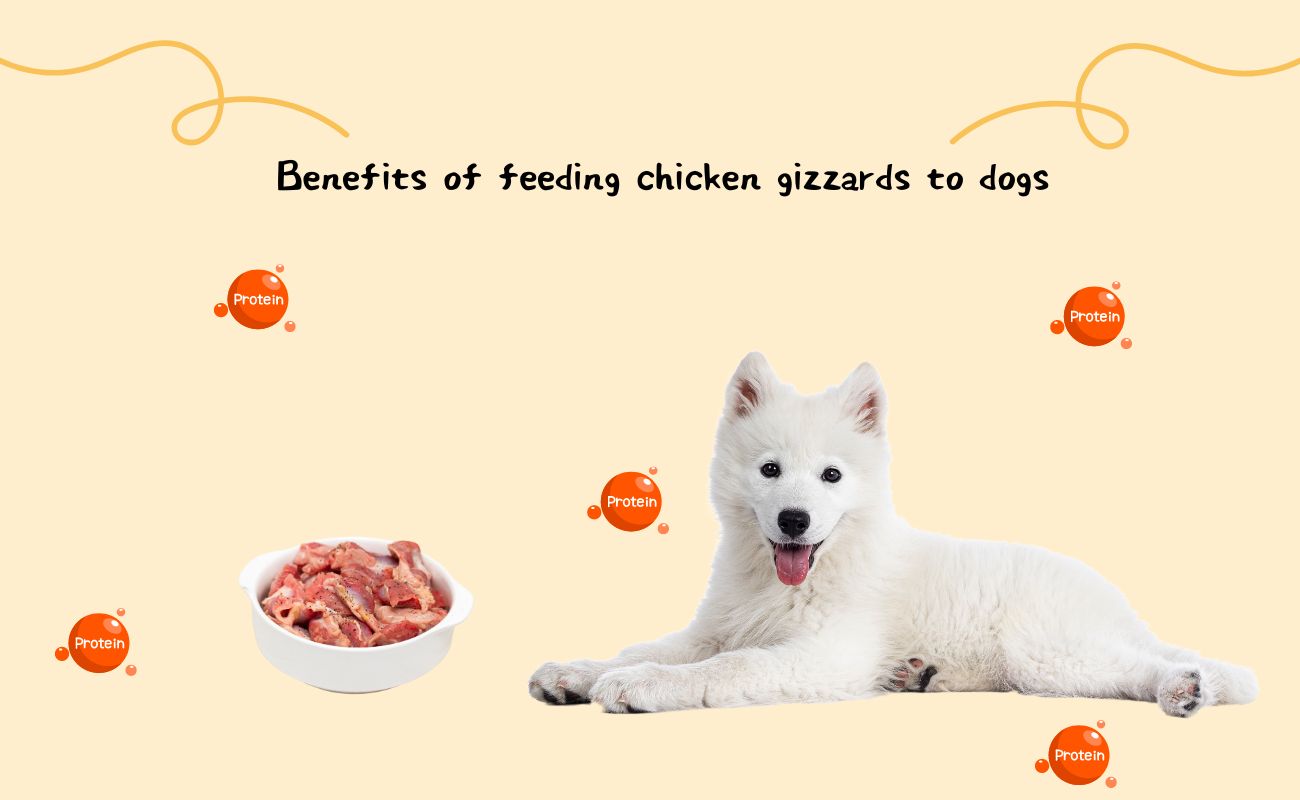
Benefits of Feeding Chicken Gizzards to Dogs
Protein-rich: Chicken gizzards offer a high-quality protein source that can help support muscle development and repair in dogs.
Nutrient-dense: Gizzards contain a variety of vitamins and minerals that contribute to your dog’s overall health and well-being.
Dental health: Chewing on gizzards can help promote dental health by reducing plaque and tartar buildup on your dog’s teeth.

Potential Risks of Feeding Chicken Gizzards to Dogs
Allergic reactions: Some dogs may be allergic to chicken or poultry products, leading to adverse reactions such as itching, skin rashes, or digestive upset.
Gastrointestinal issues: Introducing new foods, including gizzards, can sometimes cause digestive upset in dogs, such as diarrhea or vomiting.
Bone hazard: Gizzards may contain small bone fragments, which could pose a choking hazard or cause gastrointestinal blockages if not properly prepared.
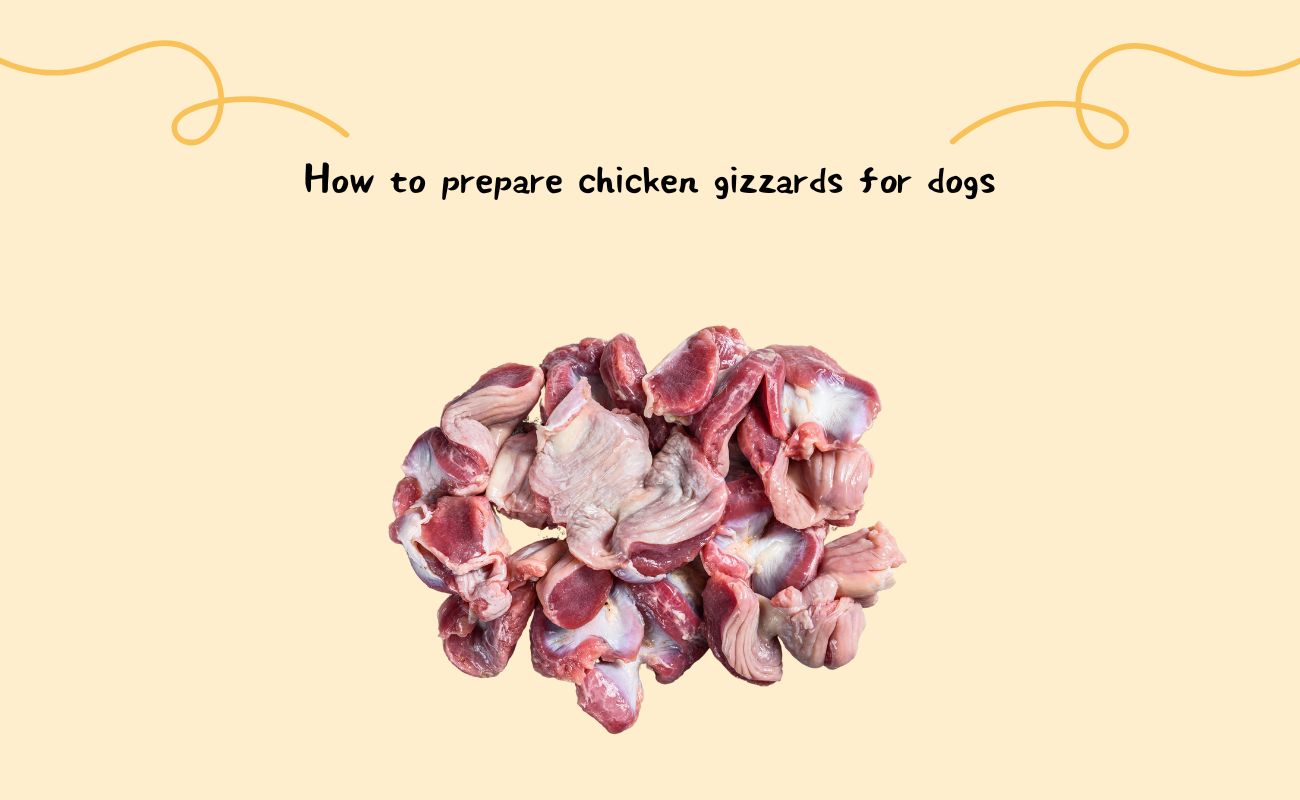
How to Prepare Chicken Gizzards for Dogs
Thoroughly wash the gizzards to remove any dirt or debris.
Remove excess fat and connective tissue from the gizzards.
Cook the chicken gizzards thoroughly by boiling, baking, or grilling to ensure they are safe for your dog to consume.
Avoid seasoning or adding spices, as they may be harmful to dogs.
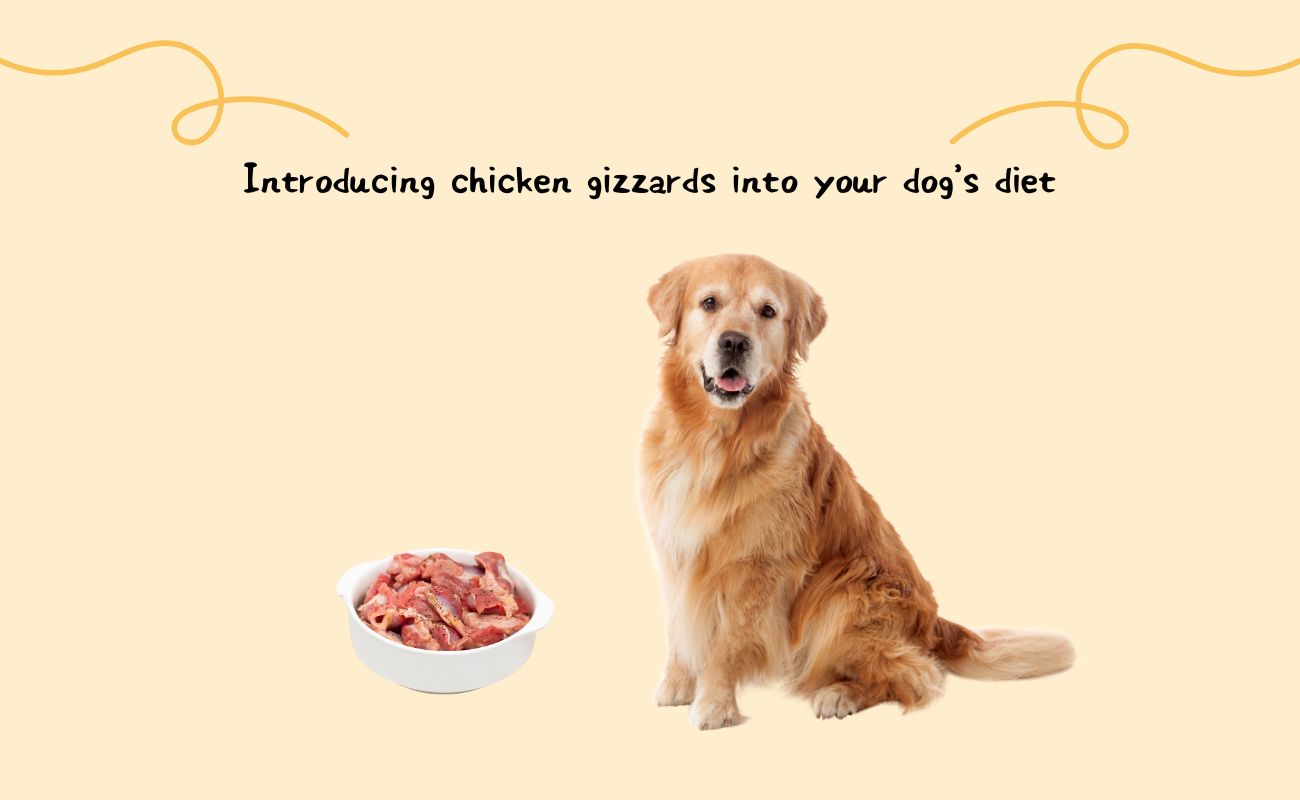
Introducing Chicken Gizzards into Your Dog’s Diet
Start by offering small amounts of cooked gizzards as a treat or topping for your dog’s regular food.
Monitor your dog for any signs of allergic reactions or digestive upset after introducing gizzards into their diet.
Portion Control and Frequency of Feeding Chicken Gizzards
Moderation is key when feeding gizzards to dogs. They should be offered as an occasional treat or part of a balanced diet.
Consider your dog’s size, age, and activity level when determining portion sizes.
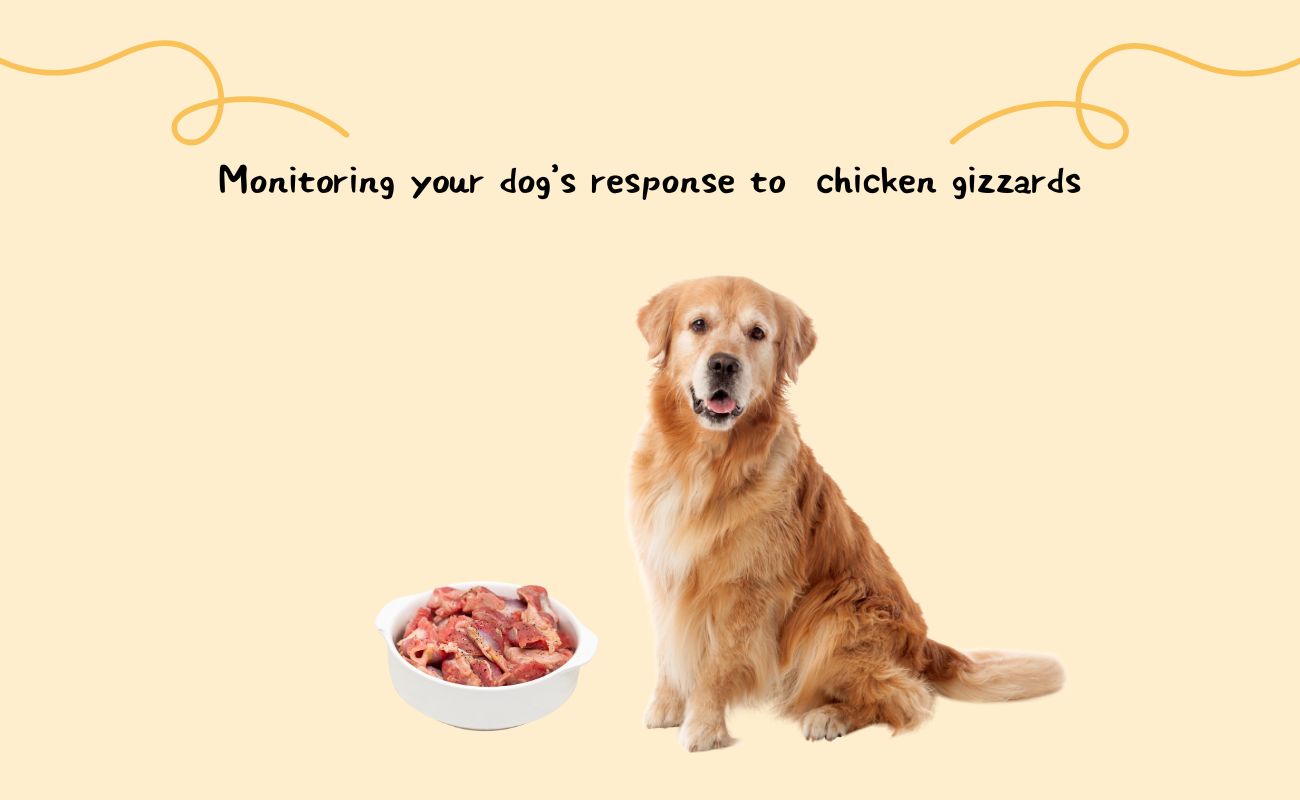
Monitoring Your Dog’s Response to Chicken Gizzards
Pay attention to how your dog responds to eating gizzards. Look for any signs of allergic reactions, digestive issues, or changes in behavior.
If your dog experiences any adverse reactions, discontinue feeding gizzards and consult with your veterinarian.

Alternatives to Chicken Gizzards for Dogs
If your dog cannot tolerate chicken gizzards or if you’re looking for alternative protein sources, consider options such as lean meats (e.g., beef, turkey), fish, eggs, or commercial dog food formulated with high-quality ingredients.
Consulting with Your Veterinarian
Before making significant changes to your dog’s diet, including the addition of chicken gizzards, it’s essential to consult with your veterinarian.
Your veterinarian can provide personalized dietary recommendations based on your dog’s individual needs and health status.
Summary: Making Informed Choices for Your Dog’s Health
Are Chicken Gizzards Good for Dogs?
While chicken gizzards can be a nutritious addition to your dog’s diet, Yes you can offer chicken gizzards to your dogs in limited amount, consider both the benefits and potential risks.
By understanding how to properly prepare and introduce gizzards into your dog’s diet, monitoring their response, and seeking guidance from your veterinarian, you can make informed choices that support your dog’s health and well-being.


